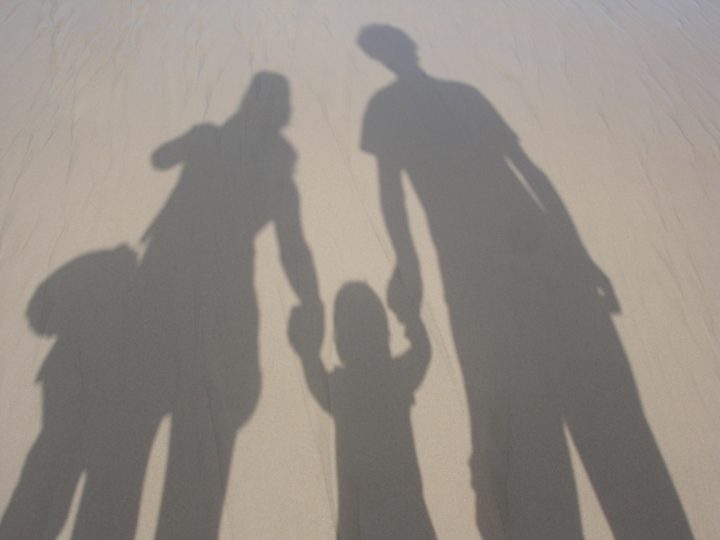
I’m getting such good questions through from people in regards to the Inner Critic to Inner Coach eCourse. I’m so glad people are emailing me with their concerns. There is one very common theme:
What if I invest in it and do every step, but it doesn’t work for ME? What if I’m just a hopeless case after all?
Let me tell you a personal story. Last year I wanted to hire a business coach. I was looking at a 4-figure investment for a short period of coaching. I’d never done anything like that before. It took me AGES to make my buying decision. And do you know what came up for me?
What if I invest all this money and it doesn’t work for me?
I’m an honest person, I don’t make things up, and I kid you not. The fear and the self-doubt disabled me for a good while. And here’s what I learnt about my Inner Critic during that process:
When you are about to step out of your comfort zone, take a risk or a chance, possibly change life for the better, the Critic GETS LOUDER.
It wants to sabotage you, hold you back, and keep you small.
If you follow me you’ll know what a huge fan of Brene Brown I am. I advocate her work whenever and wherever I can. I’ve absorbed most things she’s ever said or written. When her Netflix special came out, I didn’t dive into it right away. I wanted to save it for when the time was right. I wanted to savour looking forward to it. And that time was over the last few days. Have you seen it? I’m sure the pregnancy hormones are playing a role, but I teared up like every five minutes watching it! It resonates. And it resonates with millions of us around the world.
She defines vulnerability as: risk, uncertainty and emotional exposure. She teaches that no single act of true courage exists without this.
And here’s exactly what we’re facing. When we are about to step out and ‘dare’ – even if in just a small way – your Critic will step up. Because your Critic DOES NOT LIKE VULNERABILITY. Vulnerability to it is danger. And ultimately, its evolutionary design is to keep you safe from danger. I talk about why and how it does this on the course. What’s important to get now is that when it senses vulnerability it will self-sabotage and engineer to hold you back and keep you small. That’s what it is designed to do.
Because, you are on the brink of experiencing the juicy fundamentals of life that we are hard-wired to want and need in the bigger picture of things. Joy. Love. Belonging. And these were not in the evolutionary big picture when our fear-centred hard-wiring was in the making. When your Inner Critics were in design. Survival was the only thing on the hard-wiring agenda. Your Critic is SCARED SHITLESS of these breakthroughs. And when it senses their possibility IT WILL GET LOUDER, SABOTAGE, HOLD YOU BACK, AND KEEP YOU SMALL.
Yet, on the deeper levels of our being, we know we don’t like the experience of being held back, of staying small, of not achieving what’s important to us. Because we are neurobiologically hard-wired to want to be brave; to achieve our goals, to expand, to experience those juicy fundamentals of life. These are the things that make our lives worth living.
If you are experiencing that self-sabotage, self-doubt of: what if I invest in it, do every step, but it doesn’t work for ME? What if I’m just a hopeless case after all? then just know you are not alone. It is just the Critic doing its evolutionary task. And it means you NEED THIS WORK.
How else are we to take ourselves from fear and fear of vulnerability, to trusting ourselves and taking a chance? Yes, you need coaching! And you know the VERY BEST KIND of coaching? The coaching you can learn to do ON YOURSELF, FOR YOURSELF. Learning how to overcome the Critic and develop a full-proof Inner Coaching practice that’s inside your head, available to you 24/7, absolutely free of charge, and there supporting you and encouraging you 100%.
In other words, in my experience, this is the only way I’ve managed to learn how to answer “The Call To Courage” that Brene Brown wants us to answer.
Once I’d worked out that my doubts were just my Critic piping up and wanting to hold me back, I took the plunge and invested in the business coaching. And I got my results, because I made sure I made it work for me.
It’s not the Critic who counts. Inside or outside of your head. It’s not the Critic who counts.
With love and a small amount of daring, Charlotte xx
P.s. Please get in touch with ANY questions. I’m here to answer them and support you for the next 4 weeks until baby comes.
